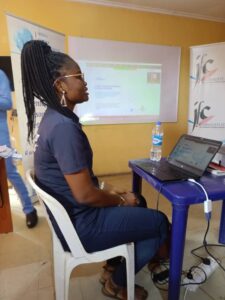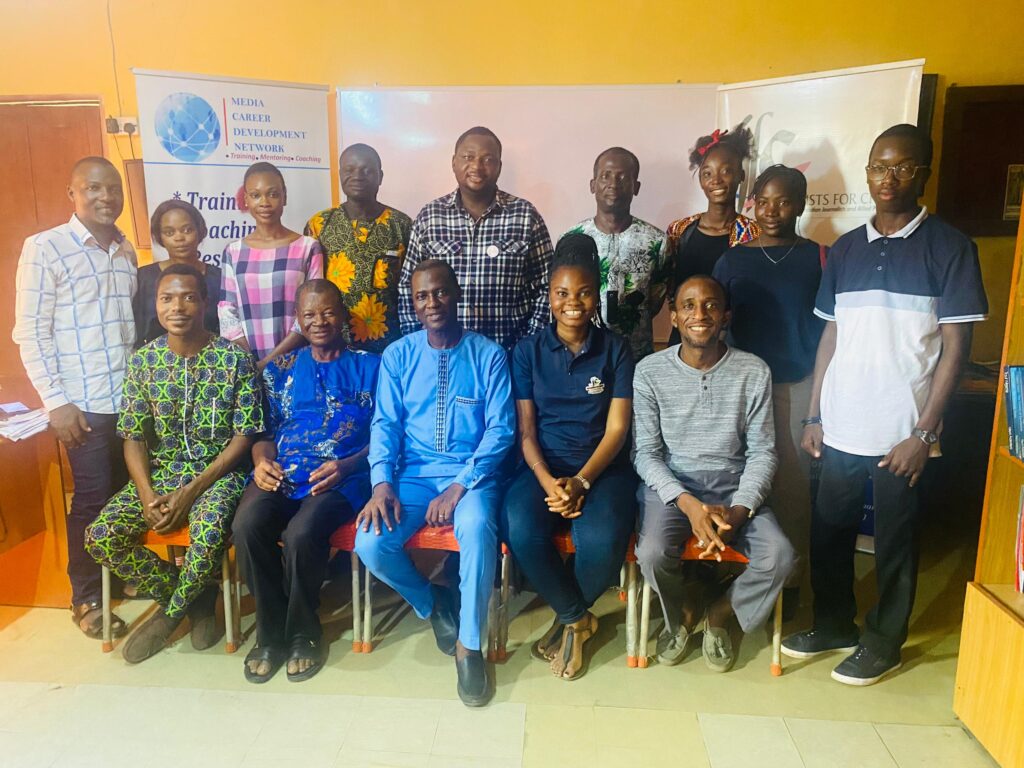Publisher of BONews Service and 2023 Global Investigative Journalism Network (GIJN) Fellow, Blessing Oladunjoye has outlined necessary steps for producing high quality investigative reports.
Speaking on the art of “Honing Investigative Journalism Skills” at a step down training from the 2023 Global Investigative Journalism Conference held recently in Sweden organised by the Journalists for Christ (JFC) Fellowship and Media Career Development Network, Oladunjoye said upholding the highest ethical standards in investigative journalism is non-negotiable.
In her presentation, Oladunjoye underlined the paramount nature of ethical considerations in journalism and urged journalists to prioritise safeguarding sources, avoid conflicts of interest, maintain fairness and accuracy, strike a balance between public interest and privacy concerns, and ensure comprehensive storytelling.
She noted curiosity, persistence, a detail-oriented approach, fearlessness, and an unwavering commitment to ethical principles as the hallmarks of successful investigative journalism.
Highlighting the process of choosing the right topic for investigative work, she encouraged journalists to engage in thorough research, gather preliminary information, and identify knowledge gaps.

Oladunjoye emphasised the pivotal role of collecting data, documents, and evidence in drawing well-informed conclusions. Building relationships with sources, conducting interviews, and meticulously verifying information were outlined as essential steps in crafting compelling and accurate narratives that provide context and impact.
In addressing the formidable challenges faced by investigative journalists, The GIJN Fellow acknowledged the legal and safety issues, threats, and the emotional toll incurred in the pursuit of hidden truths.
She offered valuable tips and resources to keep journalists committed to investigative journalism:
- Stay Informed: Keeping abreast of current events and issues is essential for identifying potential investigative stories.
- Develop a Niche: Focusing on specific areas of interest or expertise can enhance a journalist’s effectiveness in investigative work.
- Networking and Collaboration: Building relationships with fellow journalists and experts can provide support and valuable insights.
- Learning from Rejections and Failures: journalists are to regard setbacks and rejections as opportunities for growth and improvement.
Executive Director, Media Career Development Network and President of the Journalists for Christ Fellowship, Mr. Lekan Otufodunrin, commended Oladunjoye for offering to share her experience during the global conference she attended with colleagues.
He emphasised that investigative reporting represents a higher level of journalism, requiring caution, resourcefulness and adequate funding.
Otufodunrin also advised journalists to be security conscious and not take necessary precaution, noting that no story is worth their lives.


